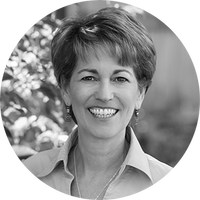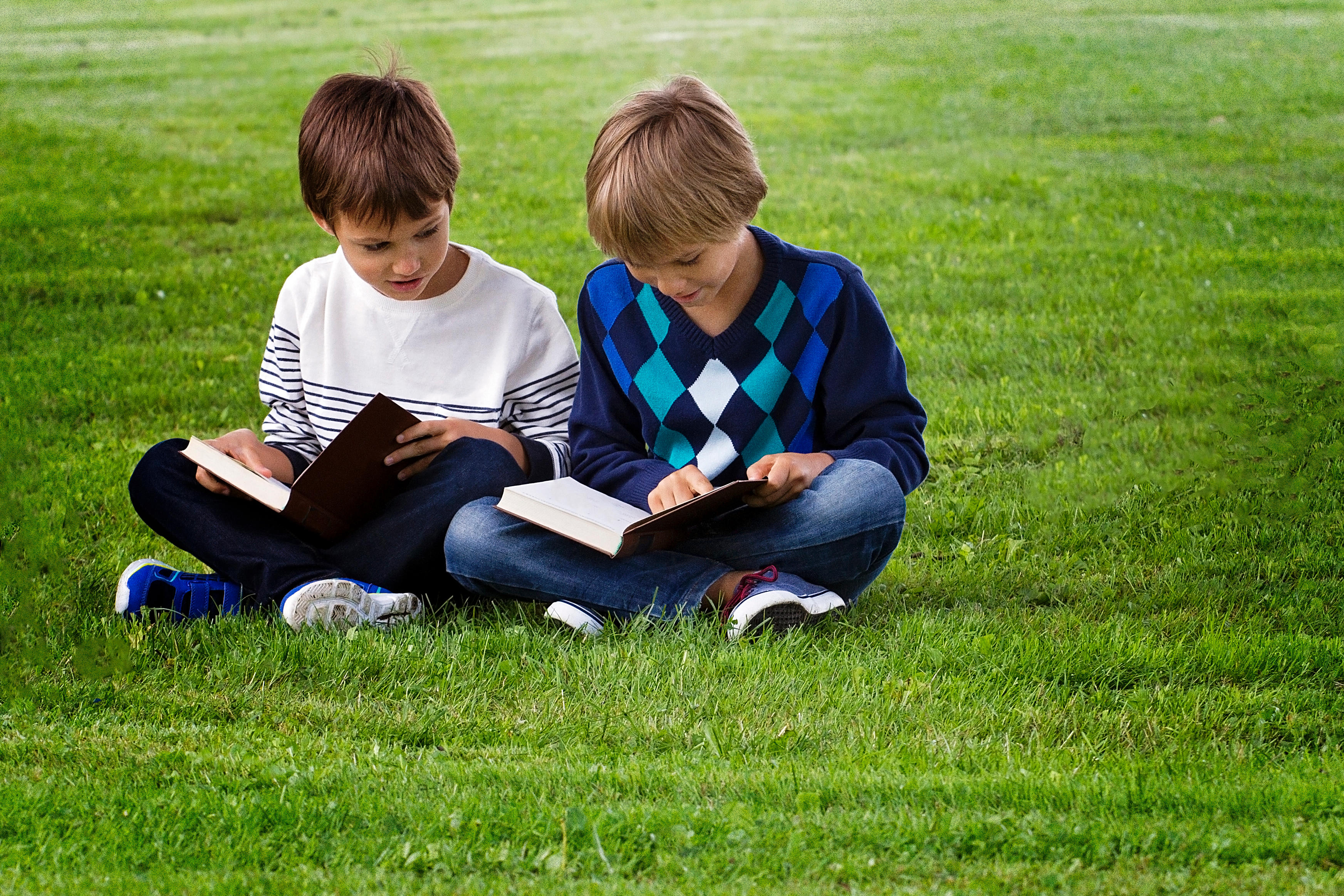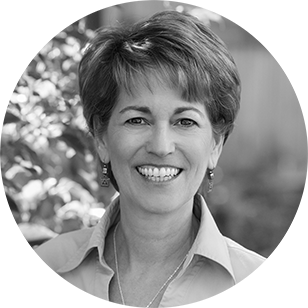I homeschooled my kids. It was one of the best parenting decisions I've ever made.
The benefits were immediate and life-changing


A free daily email with the biggest news stories of the day – and the best features from TheWeek.com
You are now subscribed
Your newsletter sign-up was successful
When my son Trevor entered kindergarten, visions of his future academic delight danced in my head. I imagined him writing stories, competing in spelling bees, reading A Wrinkle in Time. But after a two-year stint in public school, he felt bored by the curriculum and stifled by school policies. By the end of first grade, we pulled Trevor from public school and homeschooled him for nearly 10 years. And to this day, we stand by our decision to take such an alternate educational path.
Although Trevor could already read before starting preschool, he endured the painstakingly slow process of "learning to read" all over again in kindergarten. He'd blow through the lessons in seconds and spend the rest of the time reading the bootleg books he brought from home. He favored The Magic Tree House chapter books, following the intriguing historical fantasy adventures of Jack and Annie and the mysterious Morgan le Fay while his classmates were busy sounding out one-syllable words in Dr. Seuss' Cat in the Hat. He couldn't even borrow more challenging books from the school library because they weren't on the "approved" grade-level reading list, one of many ridiculously shortsighted school policies. We literally smuggled books into his backpack to take to kindergarten.
In first grade, Trevor faced the same reading frustrations, but now, math and writing had entered the mix. He had already mastered learning how to print the alphabet and was ready to tackle cursive writing. But, because he was in first grade and the school didn't teach cursive until third grade, they wouldn't allow him to "learn earlier" than he was supposed to. So, at Trevor's request, I taught him cursive after his regular school day was over. Ditto for his desire to learn multiplication (another "gotta wait 'til third grade" skill) because he had quickly mastered addition and subtraction.
The Week
Escape your echo chamber. Get the facts behind the news, plus analysis from multiple perspectives.

Sign up for The Week's Free Newsletters
From our morning news briefing to a weekly Good News Newsletter, get the best of The Week delivered directly to your inbox.
From our morning news briefing to a weekly Good News Newsletter, get the best of The Week delivered directly to your inbox.
Following a few weeks of "after-schooling" just to quench Trevor's insatiable desire to learn, my husband and I realized that Trevor shouldn't have to wait until he comes home from school to learn what he's ready to learn.
The glaring disparity between what Trevor was capable of and typical first-grade expectations became apparent on Author's Day, when students share their writing with parents. I sat awestruck listening to Trevor's complicated storyline, his advanced vocabulary, and the inclusion of dialogue complete with grammatically correct punctuation. Meanwhile, his classmates were sharing their simple, age-appropriate "My kat is fat" stories, stumbling over their own misspelled words.
Clearly, public school did not challenge Trevor. More importantly, my husband and I didn't want him to get so bored that he'd end up hating school or, even worse, hating to learn.
At the end of first grade, we took what felt like a leap into an abyss — we decided to homeschool Trevor. (A year later, we pulled his younger brother Parker from public school and homeschooled him, too.) At the time, we felt like educational deviants, trying to explain our decision to some of our family and friends who voiced their concerns about socialization, knowledge gaps, and college acceptance.
A free daily email with the biggest news stories of the day – and the best features from TheWeek.com
They didn't see our busy schedule filled with homeschool field trips, co-op classes, park day meet-ups, and homeschool classes at the local YMCA. Throw in Cub Scout meetings, soccer leagues, chess club, and Sunday school, and the boys almost had too much socialization.
As for knowledge gaps, we hit all the basics at our own speed, usually faster than the plodding pace of public school. Even better, we got to do it our way — filled with plenty of hands-on activities, games, music, art projects, crafts, recipes, and field trips. We learned in our pajamas, on our back porch, in the car, at the park, and even in the pool. (Read-alouds are way more fun when you're floating on a raft!) Plus, we tied lessons into topics the boys loved, such as U.S. presidents, cars, geography, soccer, and the solar system.
For the most part, family and friends either supported us or quietly watched from afar. Our most vocal cheerleader was my mom, who saw first-hand how much fun homeschooling was. She often accompanied us on our field trips to study history at the Renaissance festival, civil war re-enactment and pioneer village; art at the Orlando Museum of Art; literature at the Orlando Shakespeare Theater; civics at the Orange County Regional History Center; science at zoos, lighthouses, and the Orlando Science Center; music at various concert venues; and science, math, and culture at Central Florida's theme parks. As homeschoolers, we ditched worksheets in favor of engaging educational opportunities.
Occasionally, when we'd be out exploring our community during "school hours," strangers would ask why the boys weren't in school. They didn't hear the teachable moments when I was explaining cost per unit to my boys at the grocery store. They didn't know we had just come from the library and had dozens of borrowed books in our car. They didn't see the amazing rollercoaster my sons built with their teammates while attending the science center's homeschool class that morning. So, I'd just politely reply to these inquisitive strangers, "We're homeschoolers," and leave it at that. If they pressed for details (usually out of curiosity), I'd school them on the fun educational activity we just attended because we weren't confined by the schedule, policies, and brick-and-mortar building of public school.
Was homeschooling the right decision for us and our kids? Absolutely.
I homeschooled Trevor through 12th grade, and, thanks to our flexible schedule, he accumulated 40 college credits through dual enrollment classes. This shaved about a year off college for him. He took a few AP art classes at our public high school, participated in their marching band, and won enough scholarship money to pay for his remaining three years of college. Parker decided public school would be a better fit for his high school years, so he's now starting his senior year. We've been jumping through administrative hoops trying to seek approval for the dual enrollment classes Parker wants to take, but it's a struggle because they're pushing AP classes. Looking back, I regret we didn't homeschool Parker through high school.
But it's more than just academics. I created a lifetime of memories with my sons, taking on an intense commitment to seek out the best educational path for them. I helped shaped their minds, their character, and their values in a very hands-on approach. I would do it all over again in a heartbeat.
Lisa Beach is a freelance journalist, content marketing specialist, and copywriter. She's been published in Parents, USA Today Back to School, Edible Orlando, Woman's World, and dozens of other print/digital publications and websites. Find her at www.LisaBeachWrites.com.
